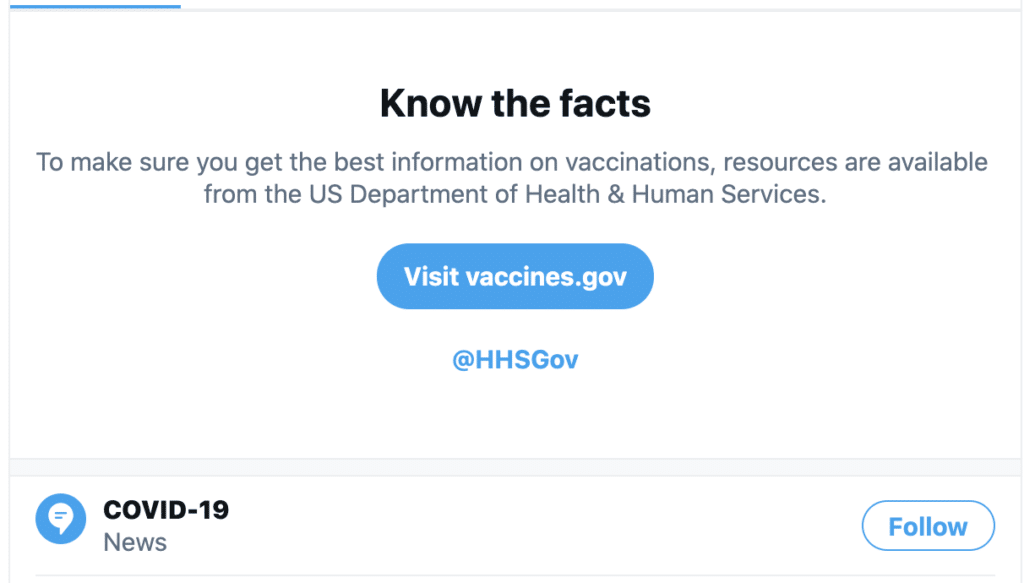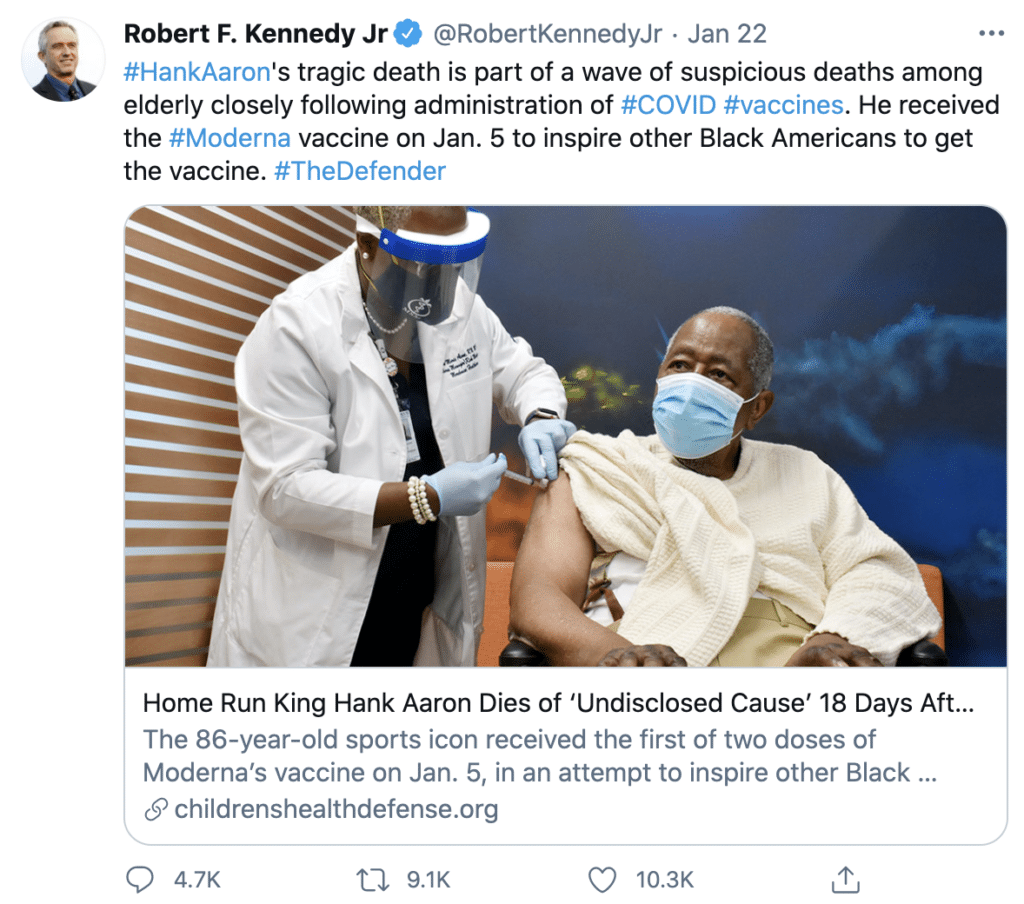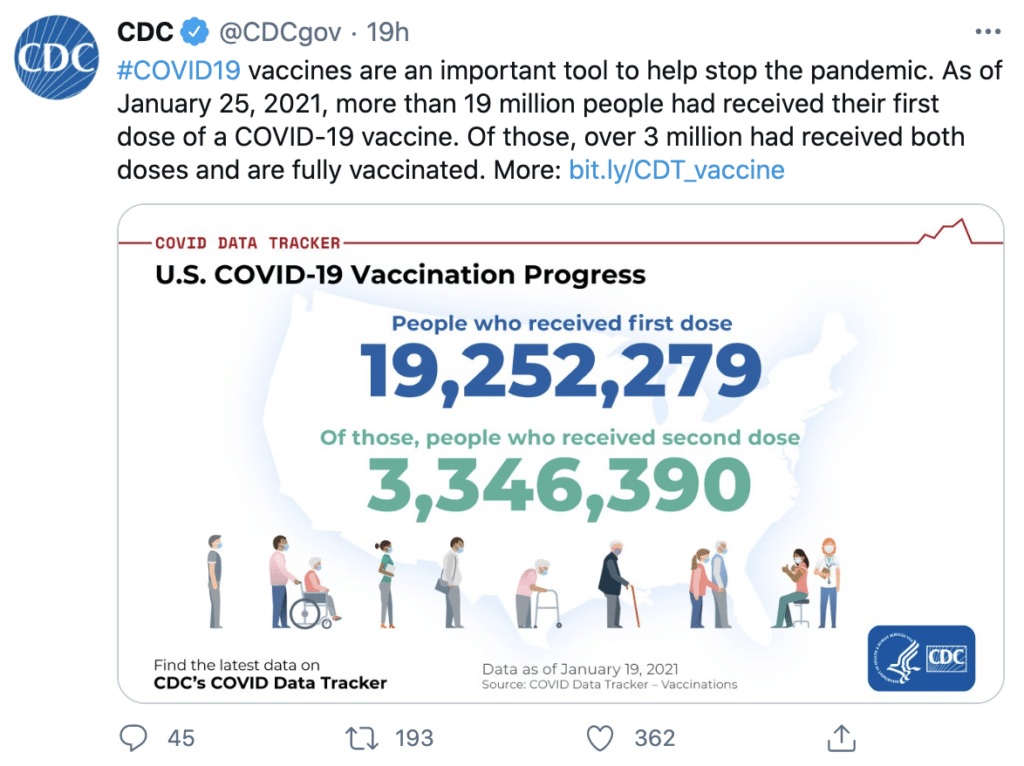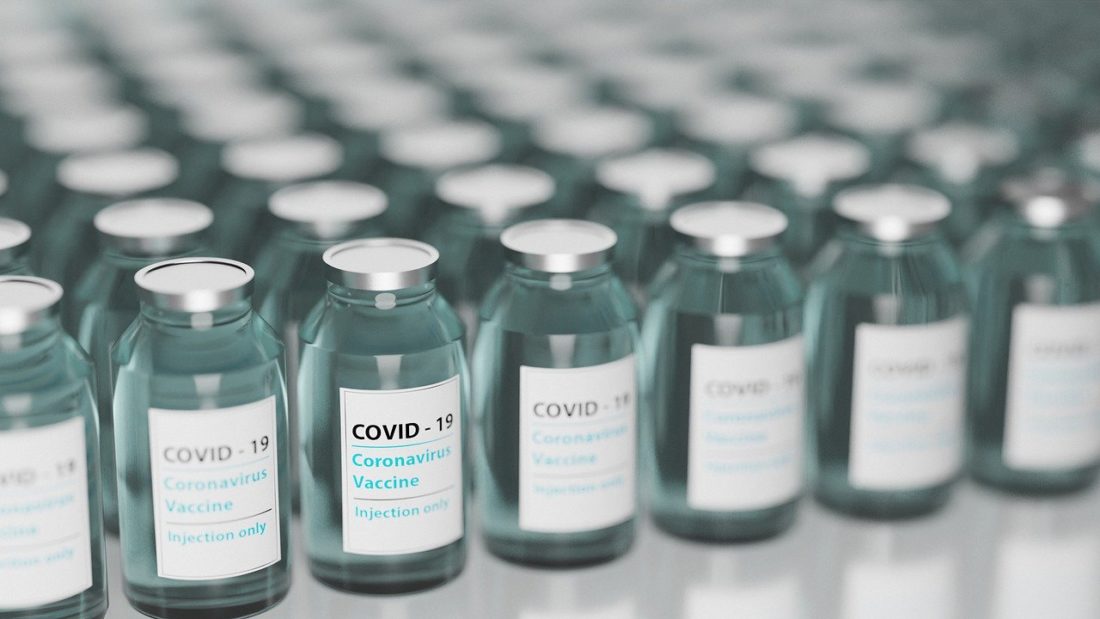It’s well documented that social media can be a reliable source of, well, unreliability. According to Smart Insights, global social media users now spend a daily average of 2 hours and 24 minutes across their social networks and messaging apps. Since the start of the pandemic, news and information regarding Covid-19 fast became a commodity in and of itself. It dominated the social landscape to a (very) captive audience. And more than half of U.S. adults report getting their news from social media “often” or “sometimes.”
As public health officials, media outlets and corporate brands tried to disseminate credible information, an overwhelming amount of misinformation emerged. Anti-vaccine and so-called “vaccine hesitant” groups, buoyed by more extreme views from conspiracy theorists and influencers, soon became voices of authority to some. What if the virus is a hoax? Is 5G responsible? Is Bill Gates?
A brand new vaccine naturally prompted questions and a certain level of anxiety, perhaps given its lightning-speed FDA approval. Yet some valid questions and concerns were overwhelmed by “alternative” facts and blatant disinformation.
Information Nation
There’s an important distinction to make between misinformation and disinformation. Misinformation typically refers to false information presented as fact, although not necessarily for nefarious purposes. Disinformation is a type of misinformation created for the sole purpose of deceiving an audience. (The terms are often used interchangeably.) And now this false information is bearing down on the Covid-19 vaccine.
The widely seen conspiracy documentary “Plandemic,” published on YouTube last year, is a perfect example of disinformation. One of its most outlandish claims was that the vaccine could kill millions of people. The video was ultimately removed by YouTube—but not before it was viewed 7 million times.
Facebook News & Views
As early as last February, the World Health Organization referred to an “infodemic” of misinformation regarding Covid. Not surprisingly, Facebook remains a ubiquitous channel for news within the ever-expanding media industry. In a new study from The Pew Research Center, one-third of Americans cited Facebook as their regular source of news.
Between March and October, Facebook removed 12 million posts (including on Facebook-owned Instagram) for promoting misinformation and disinformation surrounding Covid-19.
A Politico review of Facebook private groups found that Covid-related sections had attracted tens of thousands of participants last year. These invite-only Facebook communities—some with over 200,000 members—aren’t typically closely monitored. They also tend to have comparatively limited oversight.
Recently Facebook announced it is leveraging Artificial Intelligence and employing independent fact-checkers to help identify misinformation. They will continue to send alerts to users who had interacted with misleading content.

Facebook has also pledged to ban anti-vaccination ads. (This comes on the heels of a global advertising boycott due to content viewed as racist and politically divisive.) In addition, they will label what it deems “misleading” posts.
But according to Fast Company, these new initiatives, no matter how earnest, may be too little, too late. Exposure to anti-vaccine information increased by 60% during Covid-19. The American Association for the Advancement of Science found that 10% of Facebook vaccine groups eventually turned into anti-vaccine groups.
#hashtag newsroom

Many people have criticized Twitter as well for its lack of oversight regarding the Covid-19 vaccine. As reported by Vox, retweets of vaccine misinformation reached an all-time high in September of last year. In a blog post, Twitter says it will direct users to credible sources, such as the U.S. Department of Health & Human Services.

The purpose behind Twitter’s actions is to counter or demote false claims. One of the most vocal and recognizable anti-vaccine activists is Robert F. Kennedy, Jr. He founded Children’s Health Defense, an organization known for its strong opposition to vaccines. It has also proven to be a consistent source of misinformation based on questionable data.
Kennedy was one of the first activists linking childhood vaccines to autism. It’s a claim that has been widely debunked by the medical community. Perhaps some people just trust Robert F. Kennedy, Jr. because of the Kennedy name. But that doesn’t make his public statements any less deceitful.

Meanwhile the Centers for Disease Control and Prevention continues to tweet multiple times a day concerning #Covid19 and the vaccine. The link inside the tweet below leads to the CDC’s Vaccines and Immunizations landing page.

It’s fair to say that most people don’t have the time to pore over medical journals or conduct research. That’s why unsubstantiated claims are so dangerous. It’s just easier to browse through your social media feeds for information despite the minefield of bogus—and harmful—misinformation.
Vaccines and the Future of Covid-19
With the rollout of Covid-19 vaccines, misinformation has become even more damaging to combatting the pandemic. The vaccine’s efficacy depends on the amount of people who take it. Some polls have found as few as 51% of people in the U.S. are committed to receiving a vaccine; another 25% are wavering due to concerns about its overall safety. (The number of people committed to getting the vaccine just recently increased to 60%; some in that group said they would wait before committing.) Epidemiologists have reported that vaccinating at least 70% of the population is needed in order to develop herd immunity.
On NPR’s “All Things Considered,” a physician called the pandemic “the perfect storm” for vaccine misinformation to hit the mainstream. Clearly this is reflected across social media channels, consumed by billions of people worldwide, and trusted by far too many.
Image by torstensimon from Pixabay





Join the conversation